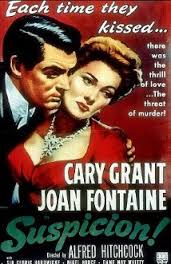中文词源
suspicion 怀疑
sus-,在下,向上,-spic,看,词源同 suspect,despicable.引申词义怀疑。
英语词源
- suspicion (n.)
- c. 1300, "act of suspecting; unverified conjecture of wrongdoing; mistrust, distrust," from Anglo-French suspecioun, corresponding to Old French suspicion, sospeçon "mistrust, suspicion" (Modern French soupçon), from Late Latin suspectionem (nominative suspectio) "mistrust, suspicion, fear, awe," noun of state from past participle stem of Latin suspicere "look up at" (see suspect (adj.)). Spelling in English influenced 14c. by learned Old French forms closer to Latin suspicionem. Used as a verb meaning "to suspect," it figures in literary representations of U.S. Western (Kentucky) slang from 1830s.
"Suspicion" words in other Indo-European languages also tend to be words for "think" or "look" with prefixes meaning "under, behind;" such as Greek hypopsia (hypo "under," opsis "sight"), hyponoia (noein "to think"); Lettish aizduomas (aiz "behind," duomat "think"); Russian podozrenie (Slavic podu "under," Old Church Slavonic zireti "see, look"); Dutch achterdocht (achter "behind," denken "to think").
权威例句
- 1. I have a sneaking suspicion that they are going to succeed.
- 我隐隐觉得他们恐怕要成功了。
- 2. He was arrested on suspicion of driving under the influence of alcohol.
- 他因涉嫌酒后驾驶被捕。
- 3. Forensic evidence points the finger of suspicion firmly at him.
- 法医的证据将怀疑的矛头明确地指向了他。
- 4. Whitlock silently cursed Graham for heaping more suspicion on him.
- 惠特洛克心里默默地诅咒格雷厄姆,因为他让自己备受猜疑。
- 5. Scotland Yard had assured him he was not under suspicion.
- 伦敦警察厅已经向他保证,他没有被视为可疑分子。

